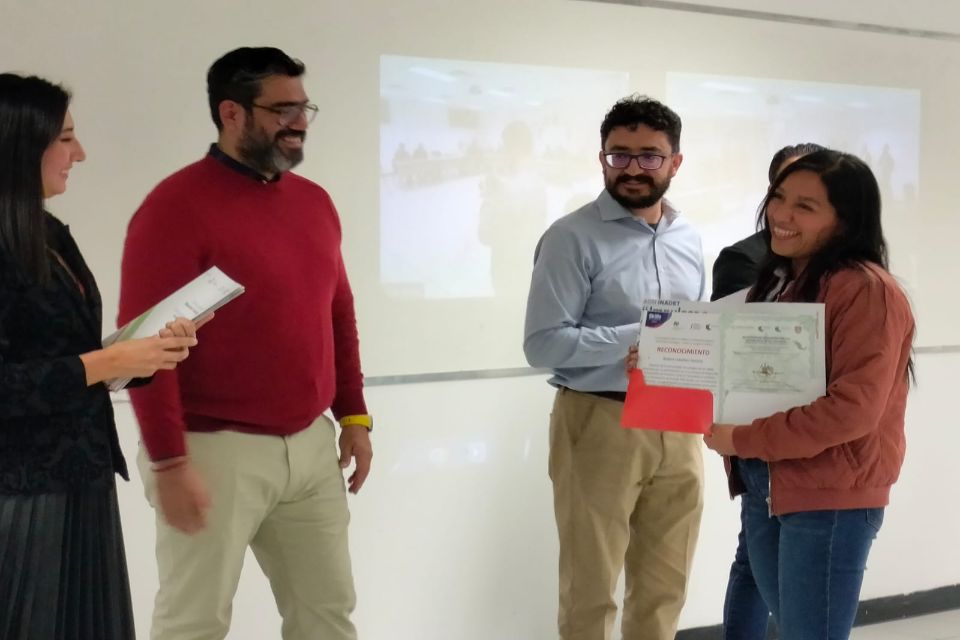[ad_1]
In today’s Mexican labour market, there is growing need for green skills that contribute towards the country’s sustainable and eco-friendly development. However, according to a LinkedIn global report, Mexico cannot satisfy the demand for skilled workers in green technologies. Jobs in these sectors have increased 8% annually over the last five years whereas graduates with the right technical capacity have only increased by 6%.
A similarly important issue is that most schools and universities do not design their courses with green industry requirements in mind. This happens when educational providers do not consult employers to understand the jobs market. As a result, many employers struggle to find the right graduates. Additionally, there is an underrepresentation of women working in STEM (Science, Technology, Engineering and Maths) in Mexico. Estimates show that there are only 4.5 women for every 10 men in studying STEM subjects at universities and technical schools across the country.

Mexican Students and Teachers Acquire Green Technology Skills with Training from the UK’s Skills for Prosperity Programme.
To address this need, the Skills for Prosperity Mexico Programme (SFPMX), a UK government initiative, works in partnership with Mexican higher education institutions to align training courses to the needs of the country’s labour market. The SFPMX Green Skills component specifically provides training in green technologies for young women and men. This includes classes on building and managing thermal and photovoltaic solar systems, energy saving applications for the manufacturing industry, and Mexico’s expanding electric vehicle industry. The Programme also teaches English language geared towards its use in green technologies.
SFPMX collaborates with 16 universities and technical schools in the states of Chihuahua, Oaxaca, Puebla, Jalisco and Yucatan strengthening by incorporating green skills courses. First, the Programme conducted an analysis of industry needs. Then, it helped redesign academic curricula and train teachers and professors. SFPMX has provided capacity-building and technical assistance to 3,139 teachers and professors who have trained 12,573 students across Mexico.
José Alfredo Casillas Ortega, a professor at the Paso del Norte Technological University, shared:
Previously, we only had enough equipment to practice setting up basic solar power systems. Thanks to the new courses, I am now able to teach my students how to measure energy efficiency, monitor solar cell performance, and calculate the reduction in carbon emissions released into the atmosphere.
Itzel Enríquez, a professor from the Technological University of the Central Valleys of Oaxaca, explained:
,
> Traveling outside of my home state for technical trainings at highly equipped facilities motivates me to keep learning and to keep doing better as a professor.
The most recent capacity building took place at the Technological Training Centre in the city of Chihuahua in December 2022. There, students and professors from all the SFPMX universities and technical schools completed a short course in energy efficient power generation. This included a visit to one of the largest thermal and solar photovoltaic systems in northern Mexico. It is important to note that this training took place alongside gender equality workshops that covered, among other things, the prevention of gender-based violence and discrimination.

Mexican Students and Teachers Acquire Green Technology Skills with Training from the UK’s Skills for Prosperity Programme.
The SFPMX Programme has a critical component whereby the education providers collaborate with employers to design job placement strategies for the students. The strategy includes training on recruitment skills such as CV preparation, interview techniques, conducting a job search, and opportunities to discuss professional careers with the business allies of the Programme.
This SFPMX collaboration between employers and education institutions is actively reducing Mexico’s employment gaps in green technology. It is also improving career prospects and potential incomes for women and men, many of whom come from vulnerable communities. Although the Programme ends in March 2023, it leaves a strong legacy of upskilled teaching staff that are better equipped to keep the momentum for quality technical education that responds closely to industry needs while promoting STEM for women and environmental sustainability.
[ad_2]
Source link
